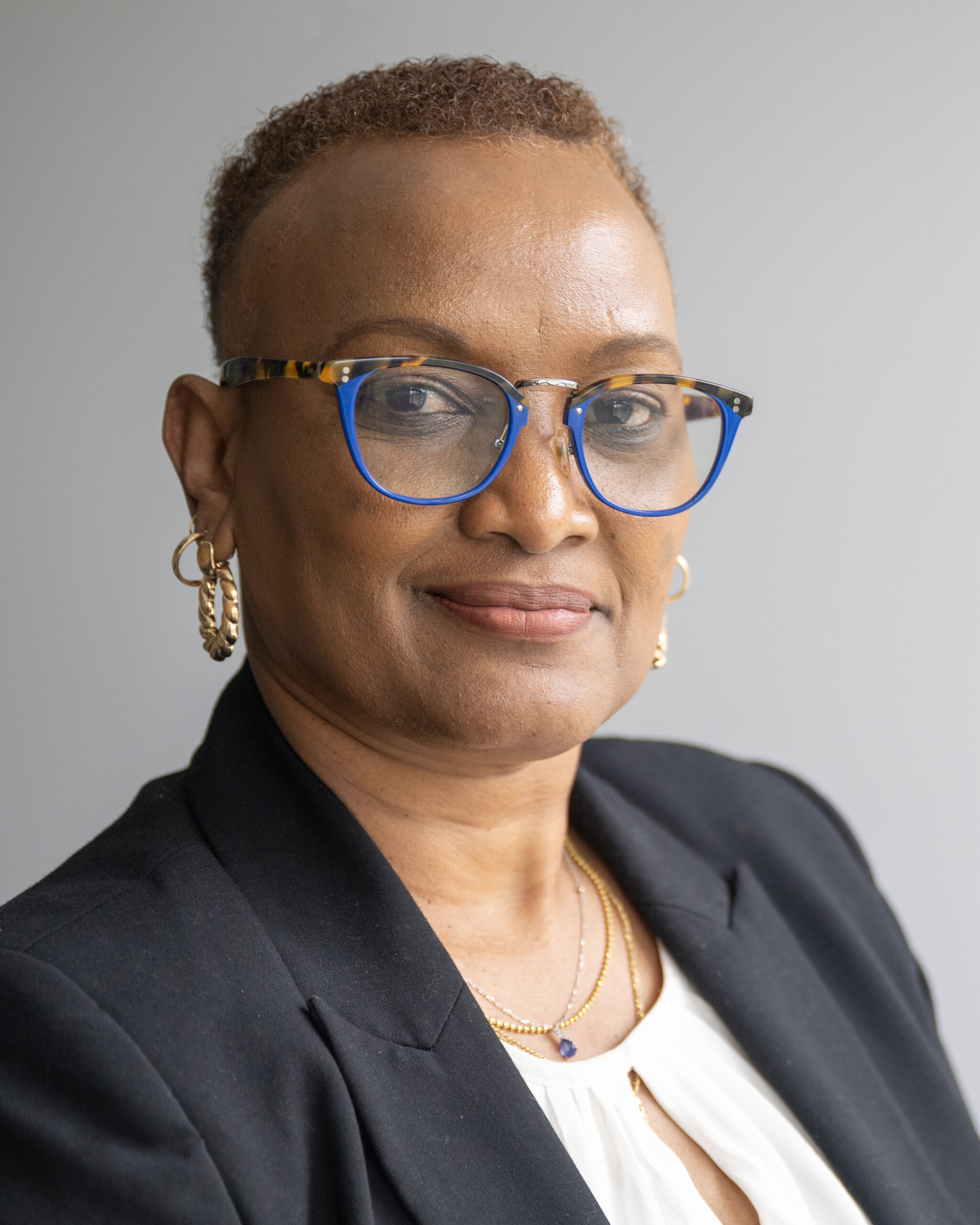Evelyn Nkomo is a 36-year-old mother of two living in Victoria Falls, Zimbabwe. Every day she is reminded of her HIV-positive status when she takes her antiretroviral [ARV] medication. While she knows that she can manage the virus, she has been careful to avoid transmitting it to her sons during pregnancy, childbirth, or breastfeeding—and she carefully monitors their health.
Now a partnership between the Elizabeth Glaser Pediatric AIDS Foundation [EGPAF] and Unitaid is giving mothers like Evelyn greater peace of mind through improved access to point-of-care early infant diagnosis.
In 2010, while she was pregnant with her oldest son, Evelyn discovered that she is HIV-positive.
She enrolled in the prevention of mother-to-child HIV transmission (PMTCT) program at Victoria Falls Hospital and prayed that her child would be born healthy.
After Akash was born, Evelyn kept a close eye on her baby boy and continued to adhere to her PMTCT treatment as she breastfed him. At six weeks, she brought him to the hospital for a postnatal visit, at which time he was tested for HIV, using conventional, laboratory-based dried blood spot (DBS) testing, which at that time was the only available method to test infants for HIV.
A health worker took blood samples from the infant and deposited them on a special filter card, where they dried. The DBS card was then sent off to Harare, 900 km. away through a courier service. The DBS testing was done only in Harare at the country’s main central hospital during this period. Later, the distance was cut in half when a lab in Bulawayo began processing DBS samples. In 2010 the average time it took to turn around results of a DBS test was 30-90 days.
Evelyn waited anxiously for months to hear news about her son’s HIV status.
Finally, the news came back: He had tested negative for HIV. However, Evelyn’s relief was short-lived, since babies must be tested multiple times to ensure that they are HIV-free. Twice more, she brought Akash in to have blood collected and sent out to Harare on a DBS card. At 24 months at the end of the breast feeding period, the boy was definitely declared HIV free. It was a monumental relief.
Seven years later, Evelyn holds her youngest, a wiggly 7-month-old boy name Anold. Her worry about Anold has been greatly reduced thanks to point-of-care early infant diagnosis (POC EID) of HIV technology.
When Anold was 6 weeks old, she brought him in to be tested for HIV, just as she had with Akash. But this time, the health worker was able to immediately analyze the blood sample through an innovative desktop POC-EID machine that is stationed in the facility itself.

Anold was tested at the Victoria Falls Hospital in the morning, and in the afternoon, a nurse called Evelyn, telling her to return to the hospital and receive the result. Evelyn was overjoyed to learn that Anold had tested negative for HIV.
I feel very happy because I know the results of my [child’s health] in a short frame of time. I’ve talked to other people about this technology, and the people are accepting it. They say that it is a good technology. says Evelyn
Like Evelyn, Nolwazi is another HIV-positive mother with an infant in the same district. She attended the Chinotimba Health Center in Victoria Falls for her antenatal care, delivery, and postnatal care. The health center is smaller than the hospital and does not have its own POC EID machine. However, in the program that EGPAF is implementing, it is considered one of the feeder sites of the Victoria Falls Hospital hub, meaning that blood samples are transported the short distance from the clinic to the hospital for testing using the POC EID of HIV technology.

In the program there are a total of 230 sites like Chinotimba which feed into 51 hub sites. It is hoped that the system known as the hub and spoke model will greatly expand access to point-of-care early infant diagnosis of HIV.
As a mother of five, Nolwazi also spent fretful months waiting for results with her previous children. “It was scary waiting for the results,” says Nolwazi. But with her 5-month-old son, she has been able to receive test results within a day.

“Before we would wait up to six months,” says Sister Sheila Rudzuna, the nurse in charge at the Chinotimba Health Center. “[Now] we give the test results to the mother within 24 hours of collecting the sample.”
“Turnaround time being 24 hours, it is easier for us to start children on ARVs [antiretroviral medication] right away,” says Rudzuna. She notes that this has not yet been necessary: “Since September [2017], we have had around 26 samples and (of) all of those have come back negative. We are still monitoring those babies for up to 2 years.”
Early infant diagnosis is very important. In an infant, the immune system is weak; it is not mature. If we delay [ARV] treatment, the chances of survival are very low. says Rudzuna
She points out that while HIV-exposed infants are enrolled on ARV prophylaxis treatment to prevent transmission from the mother during breastfeeding; antiretroviral therapy is only initiated upon confirmation of HIV infection.
“With the POC EID, collecting the sample is easy,” says Rudzuna. “We have never had any resistance from the clients. And the workload is reduced because we just do it once and are certain about the results.” In the past, sometimes a DBS test would be rejected, requiring up to six more months of waiting.
Today, Evelyn and Nolwazi sleep easier knowing early on that their babies have tested negative for HIV and knowing that they will get speedy test results in the future as they continue their postnatal visits. Evelyn is grateful for the support that she receives at Victoria Falls Hospital and hopes that young Anold will grow up to support other mothers in Zimbabwe.
I will teach Anold that there is HIV out there, so that he knows how to conduct himself, so that he will also tell his friends how to conduct themselves. I want him to be a doctor so that he can help mothers and other patients like me. says Evelyn




